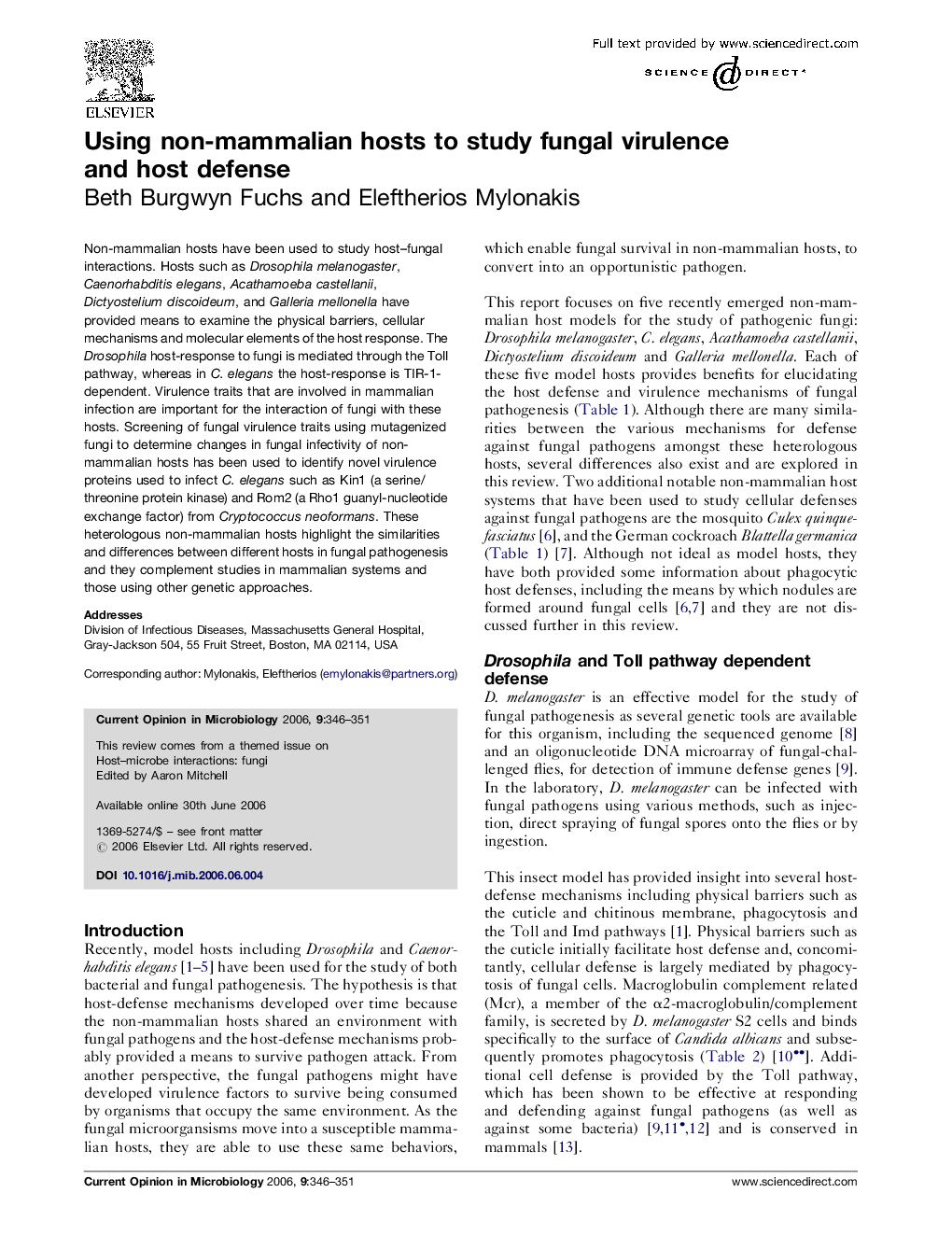| Article ID | Journal | Published Year | Pages | File Type |
|---|---|---|---|---|
| 3399712 | Current Opinion in Microbiology | 2006 | 6 Pages |
Non-mammalian hosts have been used to study host–fungal interactions. Hosts such as Drosophila melanogaster, Caenorhabditis elegans, Acathamoeba castellanii, Dictyostelium discoideum, and Galleria mellonella have provided means to examine the physical barriers, cellular mechanisms and molecular elements of the host response. The Drosophila host-response to fungi is mediated through the Toll pathway, whereas in C. elegans the host-response is TIR-1-dependent. Virulence traits that are involved in mammalian infection are important for the interaction of fungi with these hosts. Screening of fungal virulence traits using mutagenized fungi to determine changes in fungal infectivity of non-mammalian hosts has been used to identify novel virulence proteins used to infect C. elegans such as Kin1 (a serine/threonine protein kinase) and Rom2 (a Rho1 guanyl-nucleotide exchange factor) from Cryptococcus neoformans. These heterologous non-mammalian hosts highlight the similarities and differences between different hosts in fungal pathogenesis and they complement studies in mammalian systems and those using other genetic approaches.
